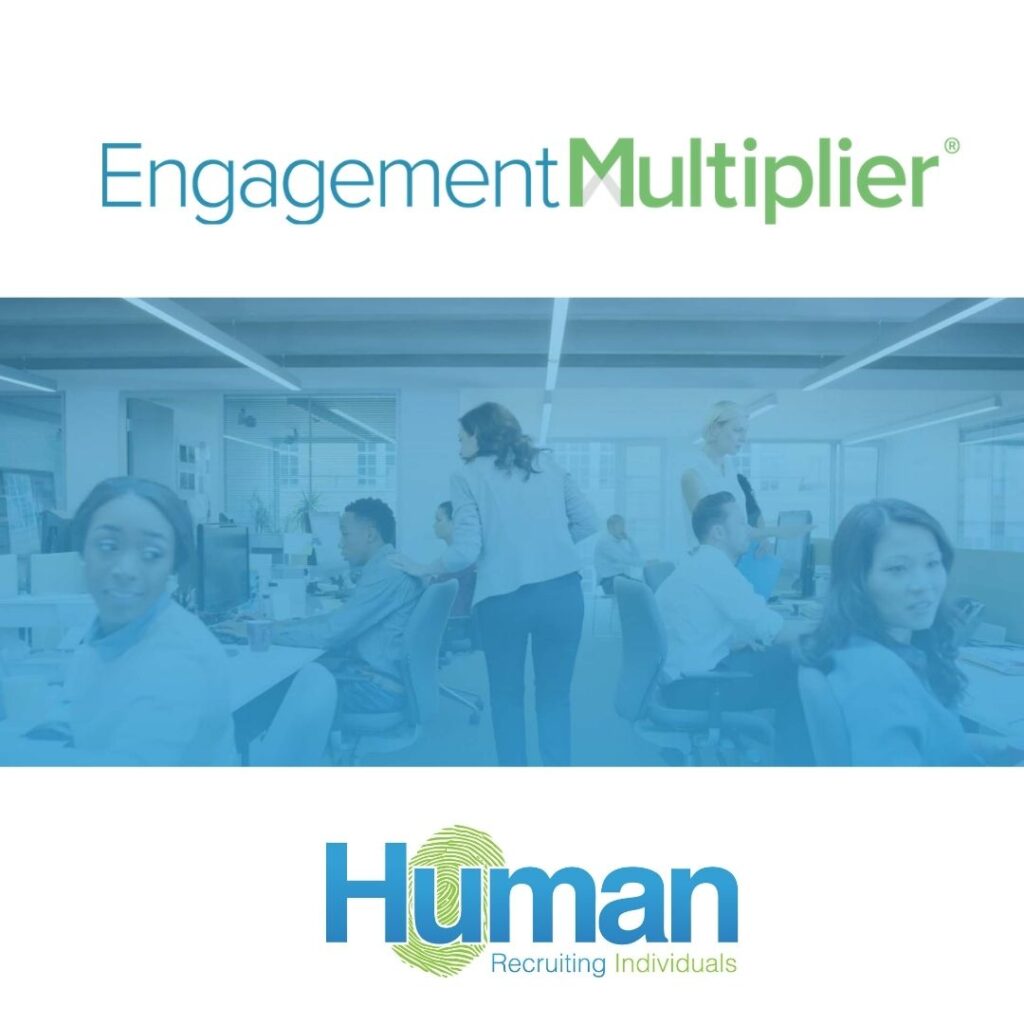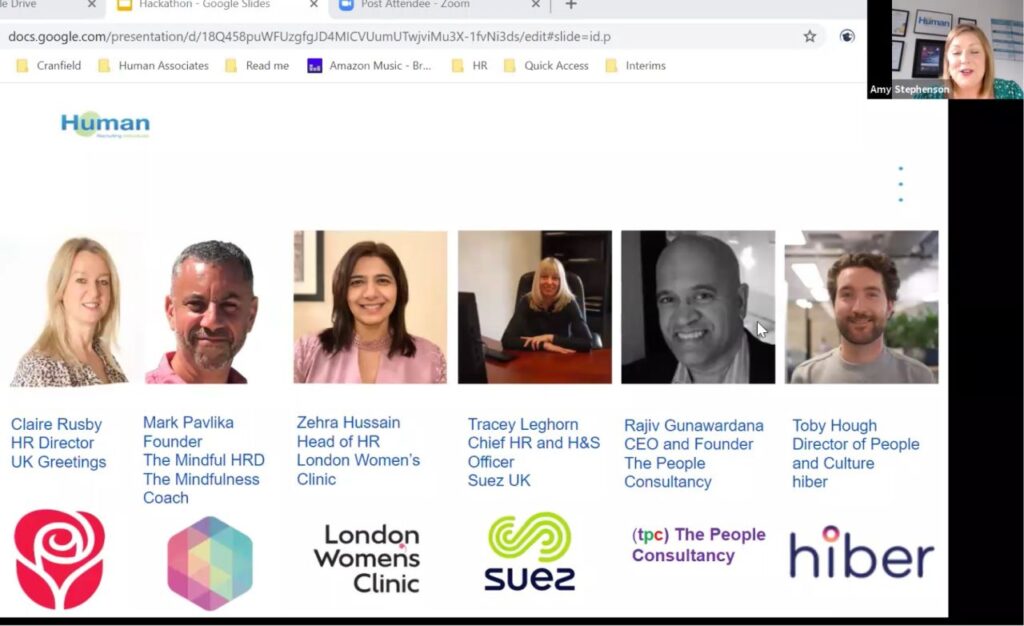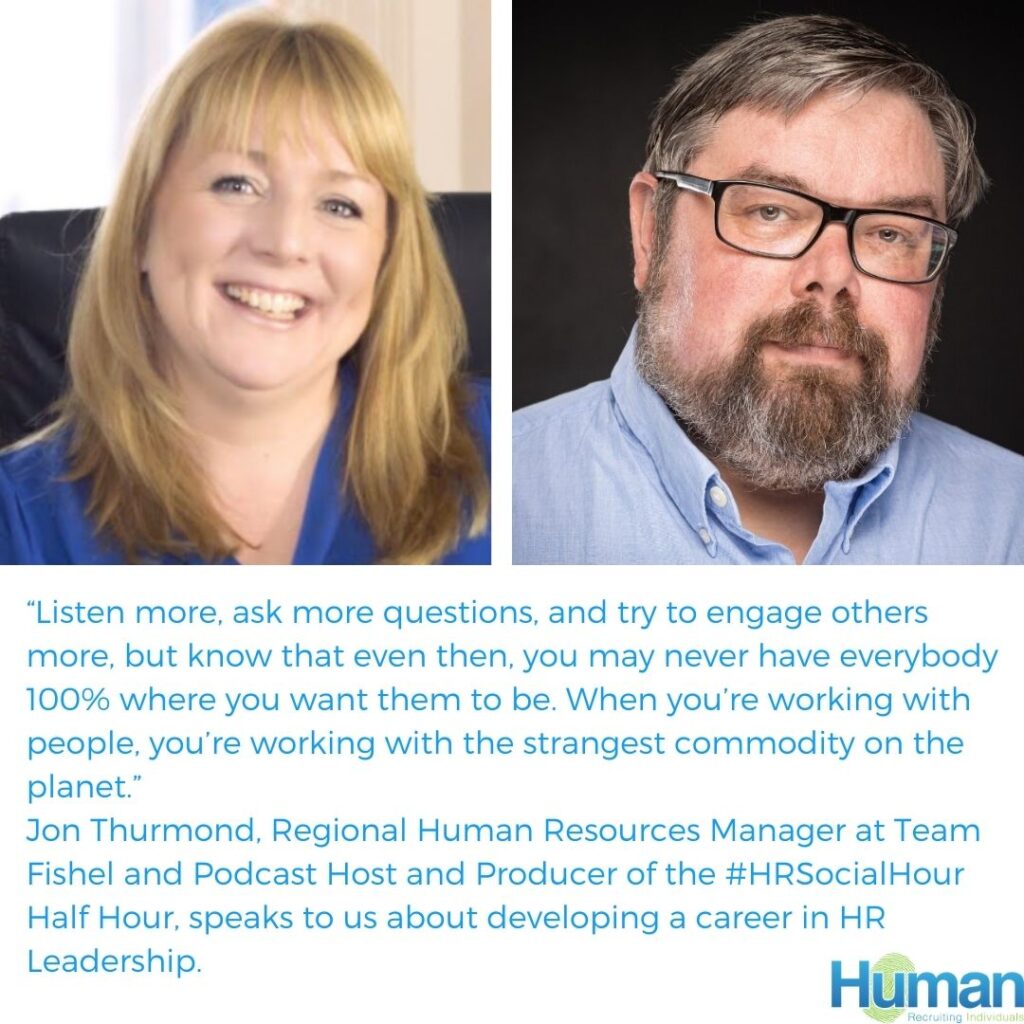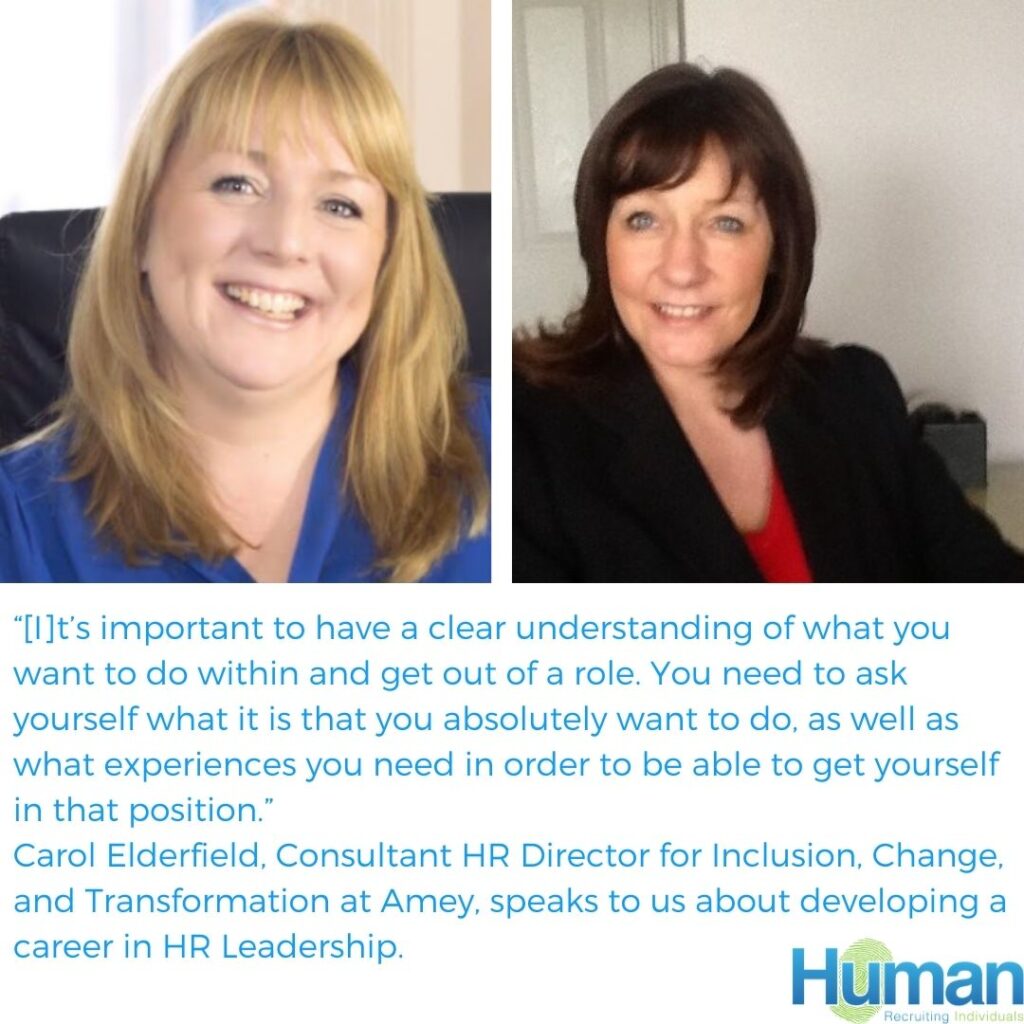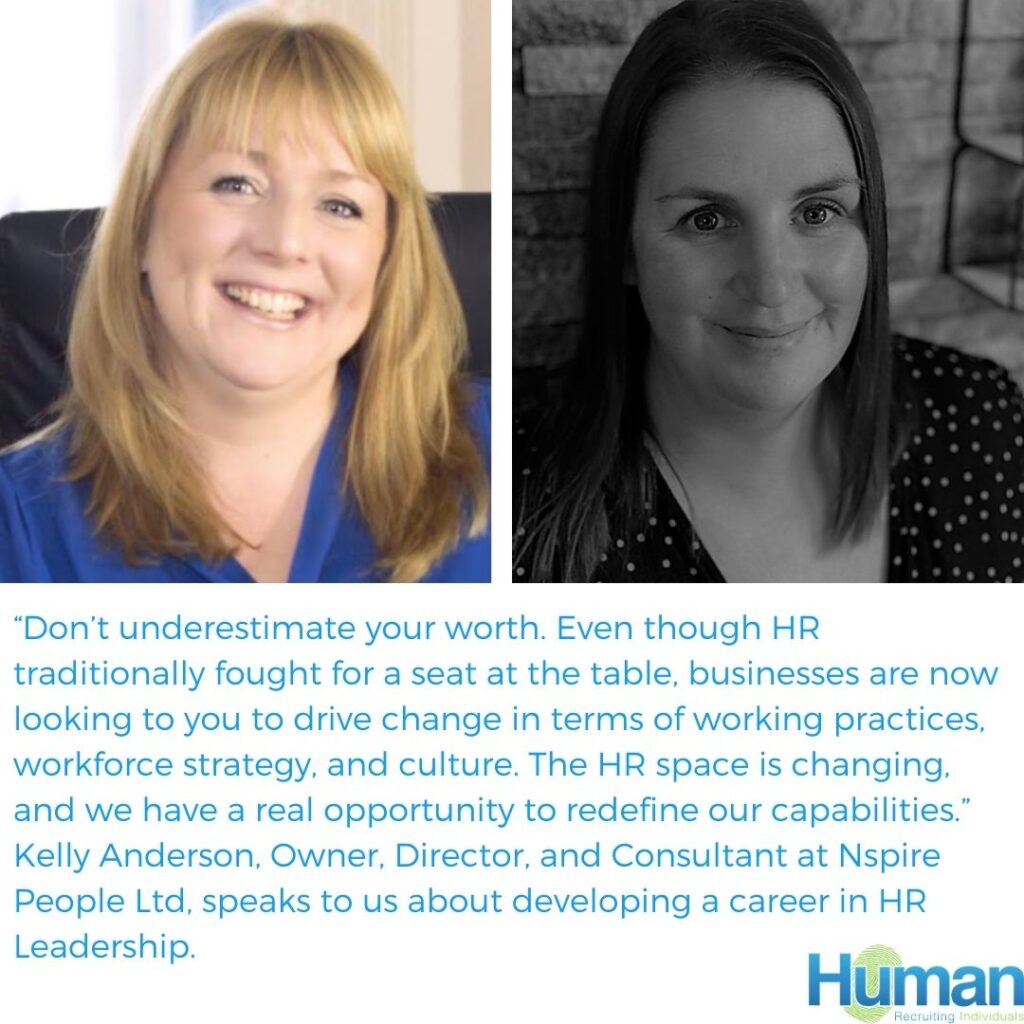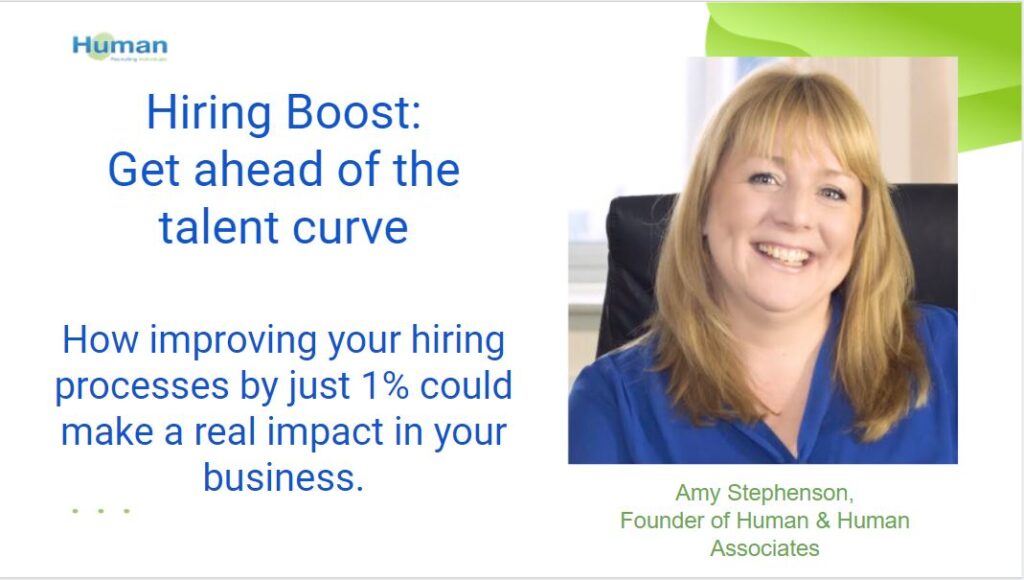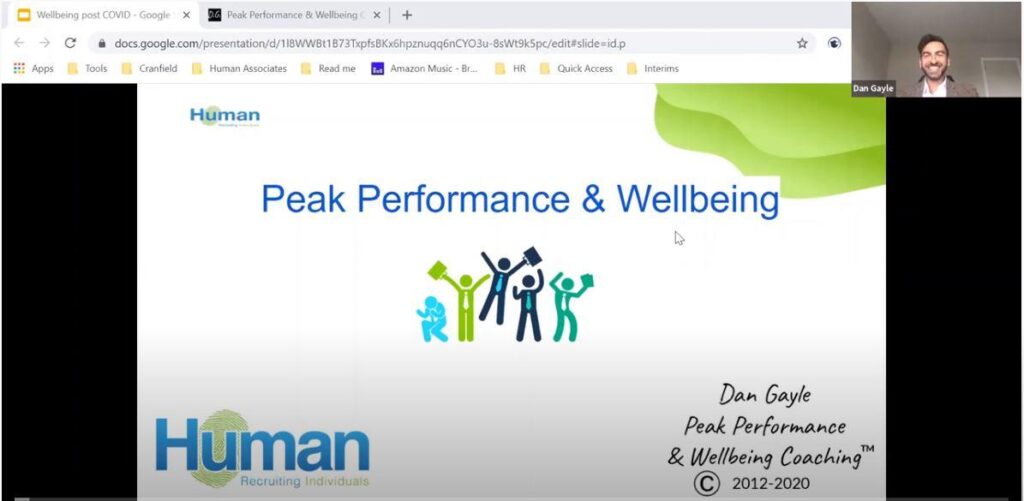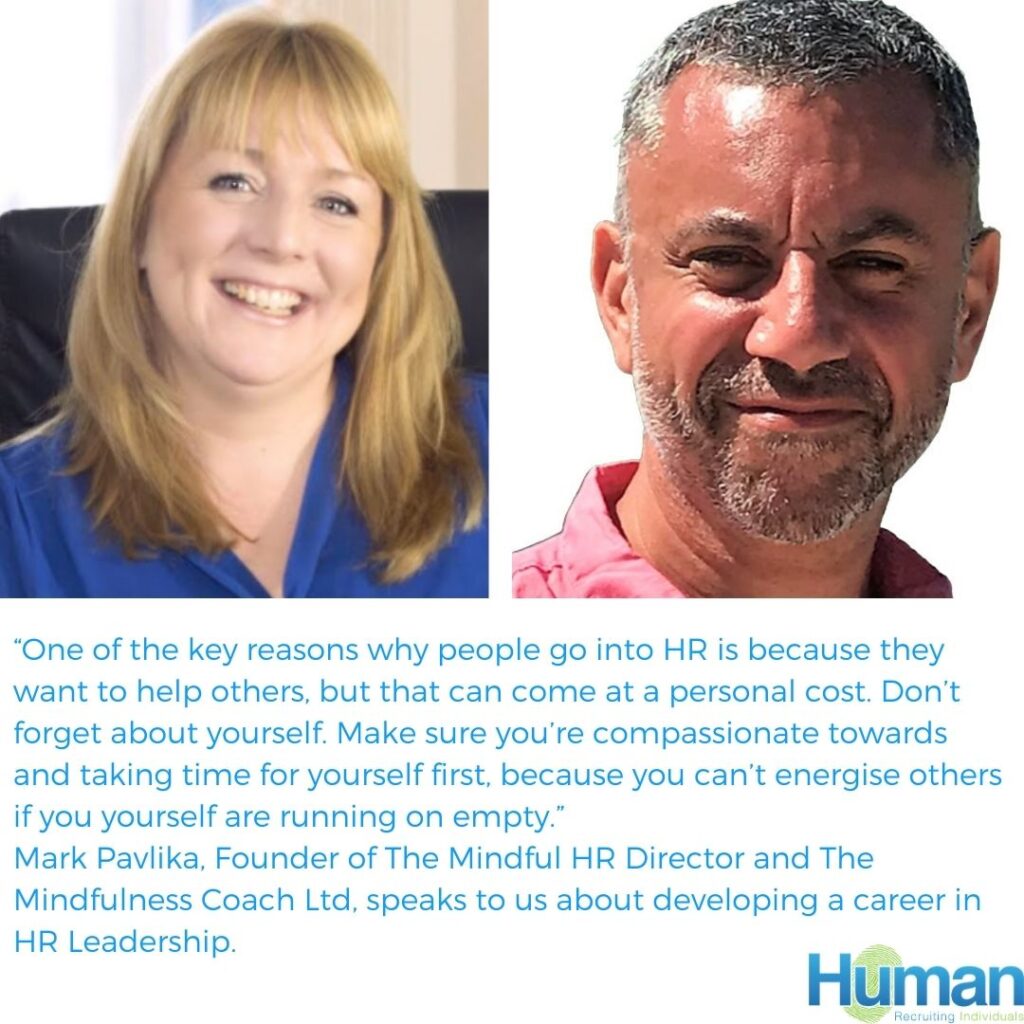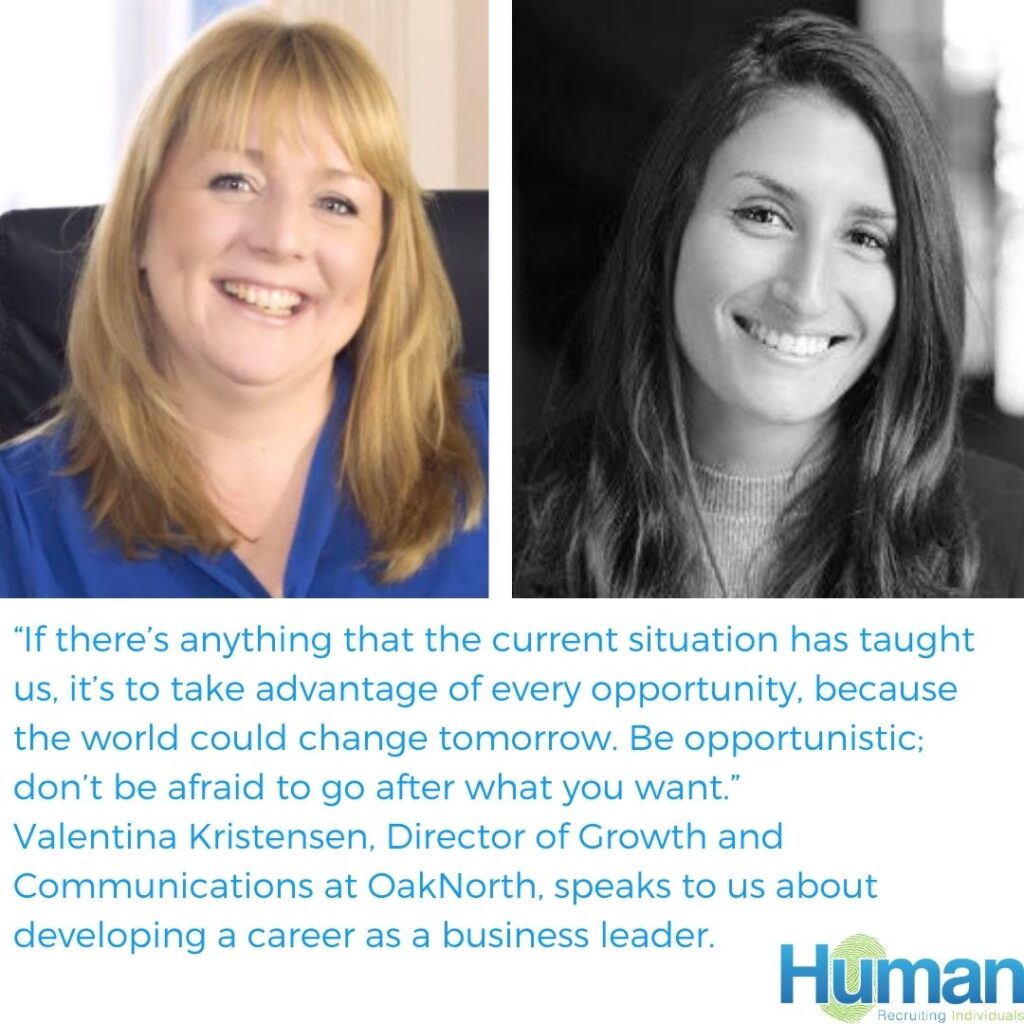“One of the key reasons why people go into HR is because they want to help others, but that can come at a personal cost. Don’t forget about yourself. Make sure you’re compassionate towards and taking time for yourself first, because you can’t energise others if you yourself are running on empty.” – Mark Pavlika, Founder of The Mindful HR Director and The Mindfulness Coach Ltd, speaks to us about developing a career in HR Leadership. As part of our commitment to supporting candidates to develop fulfilling careers, we’ve invited some HR Leaders to share the secrets of their success. This week, we had a great conversation with Mark Pavlika at The Mindful HR Director and The Mindfulness Coach Ltd, who started his career in Finance as a Data Input Clerk, Purchase Ledger Manager, and Accounts Manager for National Leisure Catering. This was later followed by roles as Management Accountant, Company Accountant, and Financial Controller at Claydon Heeley Jones Mason. In 2002, Mark made his first foray into HR Leadership as HR and Finance Director at Alcone Marketing Group. In 2006, Mark became Group Head of Human Resources at Lebara, and later set up his own HR & talent management agency called Morph Talent. At that time Mark also began serving as a Committee Member for the CIPD in July 2007. In April 2009, Mark founded the Likeminded Folk network, which he presided over until March 2015. In this time, he would take on several additional responsibilities, including ascending the ranks to Chairman of the North London branch of the CIPD. In September 2015, Mark became Head of Finance at the Institute of Promotional Marketing (IPM). Alongside this, he served as a CIPD Council Representative and HR Director at ODIN—a role which he would continue even after transitioning from IPM to his role as Senior HR Consultant at BVM Partners LLP. Mark continues to carry out a number of other roles alongside his responsibilities at The Mindful HR Director and The Mindfulness Coach Ltd. This includes his roles as People Director for ENERGY LONDON, WeAreFearless, and the Vision Nine entertainment Group. Can you tell us how you got into HR and why? I had a difficult upbringing, so when I first started out on my own, I hadn’t been to university or gained any qualifications. I eventually managed to get a job with National Leisure Catering as a Data Input Clerk. I really liked both the job and the company, so when I was offered the Purchase Ledger job managing invoices, I took it. I loved working in the department so much that I decided to qualify, and did a Foundation course with the Association of Accounting Technicians at Westminster University. From there, I started to ascend the ranks within the Finance sector. As I did, I found that I was seen as someone who people could talk to without feeling judged, a good friend, and a good colleague, so working in Human Resources felt like a natural progression when the opportunity to do so came up. I had started taking on more responsibility within my role at Claydon Heeley Jones Mason beforehand, so I was already dealing with the contractual and sickness side of things prior to that opportunity. I joined Alcone Marketing shortly afterwards. I asked if I could do 100% HR leadership, but ended up straddling both HR and Finance. As time went on, I decided to leave the Marketing sector—it was struggling in the wake of 9/11, and I was under too much pressure. I ended up making myself redundant at Alcone, took six months out to focus on myself and mental health, and eventually took on my first exclusively-HR role at Lebara. Finance has always been the foundation that my work in HR is built on, and it’s given me some really good insight around running a business, but I was confident I wanted to become an HR Director. I wanted to work with people, but still be able to balance that with my ability to run a company. After almost a year and a half at Lebara, I decided to go into freelance consultancy and help businesses develop their cultures and HR practices. The best way to do that turned out to be to go back into the Marketing and Advertising industry. To a certain degree, those who want to be at the cutting edge of a creative company culture will always find Marketing and Advertising a great industry to work in, as some employees naturally aren’t going to conform to wearing a suit or working a standard 9-5 pattern. That was the kind of environment I thrived in, so it was easy for me to return to. As it happened, I also had a brief foray back into Finance after one of my clients expressed that they needed the support of a Finance Director, although that’s a very small part of what I do for them now. Even though I’ve coached their Associate Finance Director for many years now, I’m still very much an HR Director. A few years into my freelancing venture, I decided to establish The Mindful HR Director—or Lucid Cultures, as it was initially known. I had done quite a bit of work for Vision Nine in particular that went beyond implementing systems and processes and more into monitoring and managing the mental health of the teams working at their Boardmasters and NASS festivals, and I’ve struggled with my own mental health since I was young, so I’ve always been passionate about it. As the gay child of Jehovah’s Witnesses, I went through a lot of denial and lived a double life until I was 21, at which point my parents found out and kicked me out. I had developed serious issues with my identity over the years and was left homeless, jobless, and without an education, which I used drugs to cope with at first. I was also very prone to anger and anxiety bursts caused by

